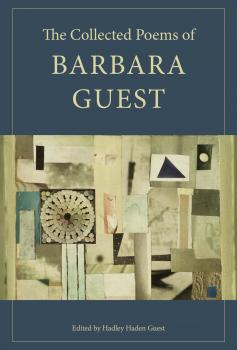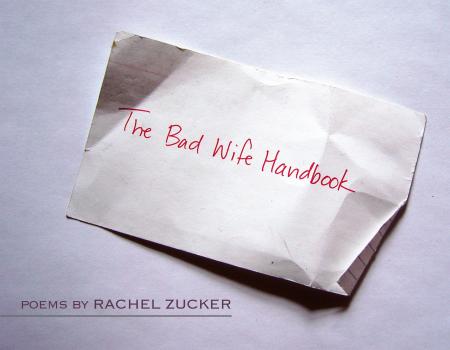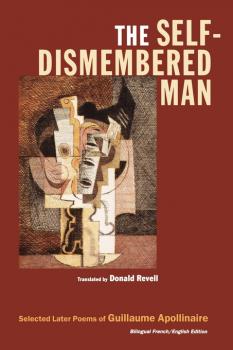ТОП просматриваемых книг сайта:
Wesleyan Poetry Series
Скачать книги из серии Wesleyan Poetry SeriesАннотация
<P>This poetic collection is an honest and deeply reflective look at life overshadowed by disputed settlements and political upheaval in the Israeli-Palestinian conflict. Yonatan Berg is a poet from Israel and the youngest person ever awarded the Yehuda Amichai Poetry Prize. This collection brings together the best poems from his three published collections in Hebrew, deftly translated by Joanna Chen. His poetry recounts his upbringing on an Israeli settlement in the West Bank, and service in a combat unit of the Israeli military, which left him with post-traumatic stress disorder. He grapples with questions of religion and tradition, nationalism, war, and familial relationships. The book also explores his conceptual relationship with Biblical, historical, and literary characters from the history of civilization, set against a backdrop of the Mediterranean landscape. Berg shares an insider's perspective on life in Israel today.</P>
Аннотация
<P>Annie Finch's Spells brings together her most memorable and striking poems written over forty years. Finch's uniquely mysterious voice moves through the book, revealing insights on the classic themes of love, spirituality, death, nature, and the patterns of time. A feminist and pagan, Finch writes poems as «spells» that bring readers to experience words not just in the mind, but in the body. Celebrated for her extraordinary love and knowledge of poetic craft, over the course of her career Finch has shaped her own innovative and radically traditional aesthetic. Her strange but familiar metrical language decenters the Self, creating a new, more open emotional relationship between ourselves, other people, and the world. Spells displays Finch's virtuosity in a broad range of genres and forms, from lyrics, chants, and narrative poems to performance pieces, poetic drama, and verse translation. The book also includes a number of new and previously unpublished poems, notably her 1980s-era «Lost Poems,» experimental work in meter that prefigures postmodern reclamations of poetic form. This wonderfully talented poet gives voice to the female and earth-centered spirituality of our era. Her emotionally eloquent and rhetorically powerful work will echo in the reader's ear long after the book is closed. Check for the online reader's companion at http://spells.site.wesleyan.edu.</P>
Аннотация
<P>Between 1855 and his death in 1867, Charles Baudelaire inaugurated a new—and in his own words «dangerous»—hybrid form in a series of prose poems known as Paris Spleen. Important and provocative, these fifty poems take the reader on a tour of 1850s Paris, through gleaming cafes and filthy side streets, revealing a metropolis on the eve of great change. In its deliberate fragmentation and merging of the lyrical with the sardonic, Le Spleen de Paris may be regarded as one of the earliest and most successful examples of a specifically urban writing, the textual equivalent of the city scenes of the Impressionists. In this compelling new translation, Keith Waldrop delivers the companion to his innovative translation of The Flowers of Evil. Here, Waldrop's perfectly modulated mix releases the music, intensity, and dissonance in Baudelaire's prose. The result is a powerful new re-imagining that is closer to Baudelaire's own poetry than any previous English translation.</P>
Аннотация
<P>In her wry and riveting new collection, Marianne Boruch discovers things often taken for granted and holds them up to deceptively casual light, questioning them both mercilessly and mercifully. Employing a masterly range of tone and form, Boruch makes a sometimes strange but always revealing investigation of world and self, history and memory, resistance and release. Here a woman levitates behind a door as her daughter badly bangs out Mozart. Here God is caught before the moment of creation, before knowledge, before «the invention/ of the question too, the way all/ at heart are rhetorical, each leaf/ suddenly wedded to its shade.» It's here raucous boys on their bikes are told—through telepathy—don't go to this war. Here, that a Dutch still life is returned to the small chaos of its making. And Eve, in «stained fascination,» stares down the snake of the lost garden. The lyric impulse in these deeply interior poems stops time, even as the world, indifferent to its mystery, keeps happening.</P><P>Praise for Marianne Boruch:<BR>"Her poems are complex rather than simple rooms &#8230; they bring the world's strangeness, and their own, home to whatever reader is open to old mysteries, both in dreams and in the waking life they illuminate."—Philip Booth, The Georgia Review</P><P>"Marianne Boruch's (work) has the wonderful, commanding power of true attention: She sees and considers with intensity. Her poems often give fresh examples of how rare and thrilling it can be to notice."—Robert Pinsky, Book World, The Washington Post</P><P>"Every detail of image and syntax shines with multiplicity."—Donald Revell, The Ohio Review</P>
Аннотация
<P><B>Winner of the SFSU Poetry Center Book Award (2010)</B></P><P>One of the most notable members of the New York School—and its best-known woman—Barbara Guest began writing poetry in the 1950s in company that included John Ashbery, Kenneth Koch, Frank O'Hara, and James Schuyler. And from the beginning, her practice placed her at the vanguard of American writing. Guest's poetry, saturated in the visual arts, extended the formal experiments of modernism, and played the abstract qualities of language against its sensuousness and materiality. Now, for the first time, all of her published poems have been brought together in one volume, offering readers and scholars unprecedented access to Guest's remarkable visionary work. This Collected Poems moves from her early New York School years through her more abstract later work, including some final poems never before published. Switching effortlessly from the real to the dreamlike, the observed to the imagined, this is poetry both gentle and piercing—seemingly simple, but truly and beautifully dislocating.</P>
Аннотация
<P>Rachel Zucker's third book of poems is a darkly comic collection that looks unsparingly at the difficulties and compromises of married life. Formally innovative and blazingly direct, The Bad Wife Handbook cross-examines marriage, motherhood, monogamy, and writing itself. Rachel Zucker's upending of grammatical and syntactic expectations lends these poems an urgent richness and aesthetic complexity that mirrors the puzzles of real life. Candid, subversive, and genuinely moving, The Bad Wife Handbook is an important portrait of contemporary marriage and the writing life, of emotional connection and disconnection, of togetherness and aloneness.</P>
Аннотация
Аннотация
<P>Continued is a selection of poems by Piotr Sommer, spanning his career to date. A kind of poetic utterance, these «talk poems» are devoid of any singsong quality yet faithfully preserve all the melodies and rhythms of colloquial speech. Events and objects of ordinary, everyday life are related and described by the speaker in a deliberately deadpan manner. Yet a closer look at the language he uses, with all its ironic inflections and subtle «intermeanings,» reveals that the poem's «message» should be identified more with the way it is spoken than with what it says. The poems in this volume were translated into English with the help of other notable poets, writers, and translators, including John Ashbery, D.J. Enright, and Douglas Dunn.</P>
Аннотация
<P><B>Winner of the National Book Award in Poetry (2004)</B></P><P>Since the 1965 publication of her first book, Dream Barker, selected for the Yale Younger Poets Award, Jean Valentine has published eight collections of poetry to critical acclaim. Spare and intensely-felt, Valentine's poems present experience as only imperfectly graspable. This volume gathers together all of Valentine's published poems and includes a new collection, «Door in the Mountain.»</P><P>Valentine's poetry is as recognizable as the slant truth of a dream. She is a brave, unshirking poet who speaks with fire on the great subjects—love, and death, and the soul. Her images—strange, canny visions of the unknown self—clang with the authenticity of real experience. This is an urgent art that wants to heal what it touches, a poetry that wants to tell, intimately, the whole life.</P>
Аннотация
<P>Guillaume Apollinaire's final years exactly coincided with the clamorous advent of European Modernism and with the cataclysms of WWI. In The Self-Dismembered Man, poet Donald Revell offers new English translations of the most powerful poems Apollinaire wrote during those years: poems of nascent surrealism, of combat and of war-weariness. Here, too, is Apollinaire's last testament, «The Pretty Redhead,» a farewell to the epoch that he—as poet, convict, art-critic, artilleryman and boulevardier—did so much to conjure and sustain until his death on Armistice Day in 1918. Readers of Apollinaire's more familiar early work, Alcools (Wesleyan, 1995), will find here a darker and yet more tender poet, a poet of the broken world who shares entirely the world's catastrophe even as he praises to the end its glamour and its strange innocence. This English translation, facing the original French, illuminates Apollinaire's crucial and continuing influence on the European and American avant-garde. The volume includes a short translator's preface.</P>
Информация о книге
Автор произведения Guillaume Apollinaire
Жанр Поэзия
Серия Wesleyan Poetry Series










